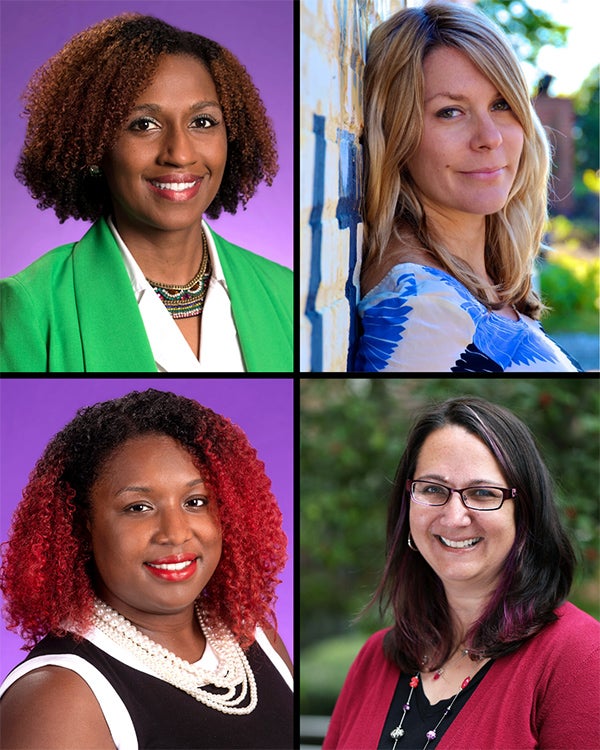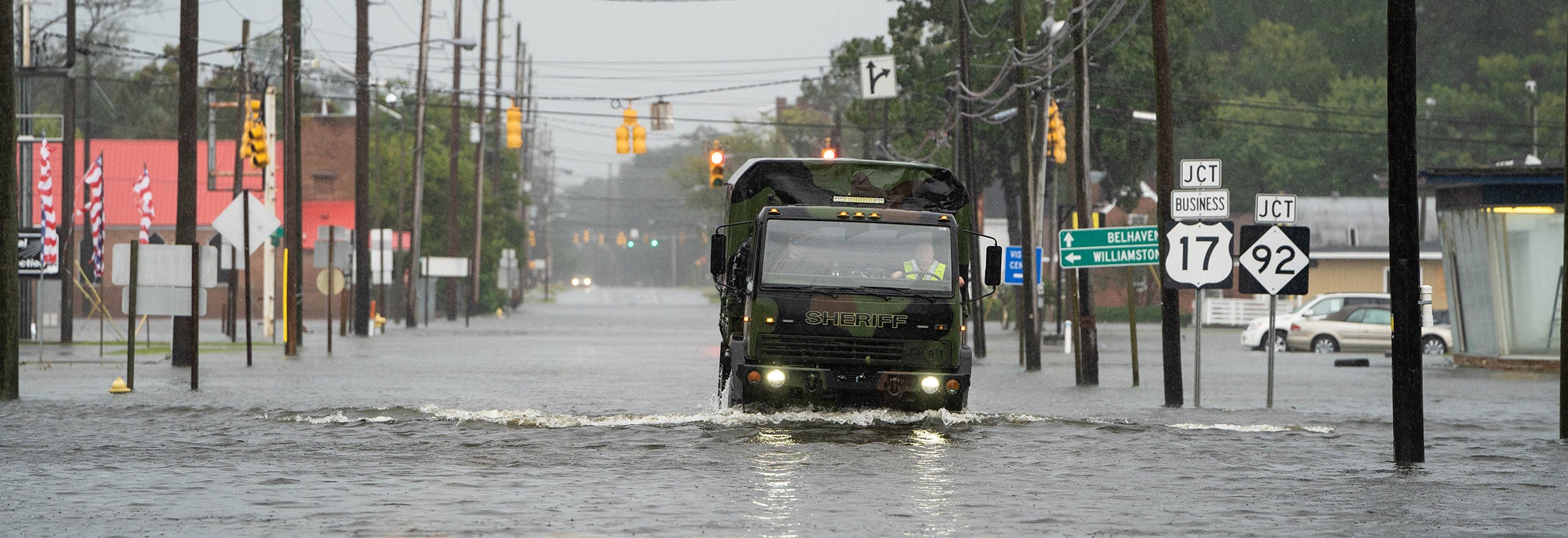PROJECT DON’T WAIT
Grant funds disaster mental health preparation and response in rural communities
One devastating and often forgotten side effect of disasters is the impact to mental health. This is especially true in rural communities that experience a shortage of health care and economic resources.
To help combat this, the East Carolina University College of Education’s counselor education program is collaborating with the ECU Rural Education Institute (REI) on a project to address disaster mental health preparation and response.
The project, named “Don’t Wait-Communicate: Disaster Mental Health Preparation and Response in Rural Schools and Communities” or “Project Don’t Wait” for short, is funded by a $998,990 grant from the U.S. Department of Health and Human Services Substance Abuse and Mental Health Services Administration (SAMHSA).
“Our approach is to outfit these communities with additional mental health support, mental health clinicians in the schools and to provide workforce development training in the communities that church organizations, parents, families, first responders and other stakeholders can have access to, before as well as during these disasters,” said Dr. Loni Crumb, an assistant professor in the counselor education program and principal investigator on the grant. “We are taking a proactive rather than reactive approach to disaster training and preparedness.”
The idea behind the grant stemmed from ECU’s location in the southeastern region, an area that sees numerous hurricanes and has neighboring counties that have received federal disaster declarations due to storms. Project Don’t Wait will work with three counties — Jones, Lenoir and Beaufort — to develop a school-community-university partnership.
According to Crumb, combining school and community-based interventions can help circumvent common mental health treatment barriers, such as transportation difficulties, time constraints, communication breakdowns, knowledge gaps and the stigma associated with seeking mental health services.
In addition to school-based mental health services and workforce development training, the Project Don’t Wait team will provide professional consultation services to community members, which is crucial and helps create communities that are adequately prepared for and capable of responding to disasters.

Dr. Loni Crumb, top left, is the principal investigator of the Project Don’t Wait grant. Counselor education faculty Dr. Allison Crowe, top right, and Dr. Janeé Avent Harris, bottom left, are co-investigators on the grant. Rural Education Institute Director Dr. Kristen Cuthrell is providing assistance and services for the grant. (Contributed photo)
“They’ve lived through the hurricane but then they have to go back to school and help their children when their house is damaged,” Crumb said. “It will help them to build skills and resiliency in helping others respond when they have already been impacted by loss in some form.”
Although the proposal originally targeted hurricanes, the scope has now been broadened to include responses to pandemics. Mental health challenges follow any type of disaster or crisis and can include increased stress, anxiety, homelessness, substance abuse and domestic violence.
“We’re going to take a comprehensive, holistic approach to address mental health challenges that may impact people’s well-being following a change or natural disaster,” Crumb said.
“One part of this grant that we are very grateful for is that it provides the ability to hire clinical staff to provide rural residents with access to more mental health professionals,” she said. “We’re also hoping to find resources for housing as well. After natural disasters that have a big impact such as floods, housing insecurities are often an issue.”
The project will last for 18 months and began on April 30. Crumb hopes to build sustainability through the grant’s duration so counties can continue the work.
One part of the grant that excites her is a rural disaster mental health summit that is tentatively planned for 2021 that will gather together behavioral health professionals and first responders from North Carolina, South Carolina, Virginia and Georgia.
“We want to bring them to East Carolina University to convene about disaster response and programming that really addresses what we’re looking at in the southeastern states,” she said. “We will not only have a local impact, but we’re also looking to have a regional, even national, impact, from our services.”
Counselor education faculty members Drs. Janeé Avent Harris and Allison Crowe and REI director Dr. Kristen Cuthrell are working on the grant with Crumb.
“We are so excited for the opportunity to collaborate with rural communities in our region, to partner with so many amazing community stakeholders and do this work that is near and dear to our heart,” Avent Harris said.
REI will provide program evaluation services and assist in dissemination activities, such as the rural disaster mental health summit.
“From recent REI experiences, we know firsthand how targeted programming assists youths in developing healthy responses to traumatic stress that accrues from adverse events and environments,” Cuthrell said. “We are appreciative of the opportunity to partner with our rural schools and communities in expanding mental health supports for our children and families – especially in times such as these.”
